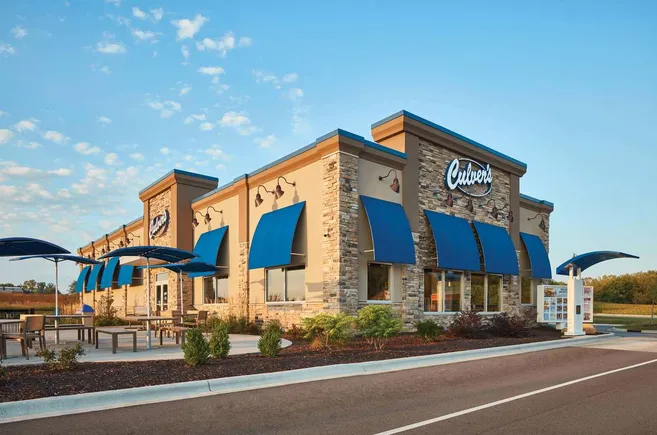Dive Brief:
- The U.S. Equal Employment Opportunity Commission is suing a group of five related Culver’s restaurant operators in Michigan for allegedly firing a transgender worker and three of his colleagues a day after they complained about continued harassment, according to an agency news release.
- Two Culver’s workers — a mother and daughter — at the Clarkston, Michigan, Culver’s restaurant allegedly repeatedly misgendered the transgender shift manager, EEOC said in a lawsuit (EEOC v. Brik Enterprises, Inc.) filed Oct. 25 in the U.S. District Court for the Eastern District of Michigan. One of those workers allegedly made anti-trans comments and deadnamed him, revealing his birth name without his consent. After reporting the harassment to a general manager for the second time, the four complaining workers were fired, the agency said.
- EEOC alleges the Culver operators — Brik Enterprises, Inc.; Davison Hospitality, Inc.; Fenton Hospitality, Inc.; GB Hospitality, Inc.; and Blue Water Hospitality, Inc. — violated Title VII of the Civil Rights Act of 1964. Culver’s could not immediately be reached for comment, and the Culver’s operators said they were limited in what they could say, given the case is an ongoing legal matter.
Dive Insight:
Title VII says that employers can’t discriminate against individuals in any aspect of employment because of race, color, religion, sex or national origin. The statute also prohibits retaliation against employees for participating in a complaint process, EEOC says.
“Employers must protect all employees, including transgender employees, from sex-based harassment at work,” Omar Weaver, assistant regional attorney in EEOC’s Detroit office, said in a statement. “When employees complain of harassment, whether directed at them or witnessed by them, employers cannot fire those employees because of their complaints.”
EEOC has targeted workplace harassment against transgender workers in recent years, building on the landmark 2020 U.S. Supreme Court ruling in Bostock v. Clayton County, Georgia, which established that Title VII’s prohibitions on sex discrimination include discrimination based on sexual orientation and gender identity.
For example, EEOC filed a lawsuit Sept. 25 alleging that the owners of a Holiday Inn Express in Jamestown, New York, maintained a hostile work environment in which a transgender worker was fired soon after reporting harassment and misgendering by a supervisor.






Leave a Reply